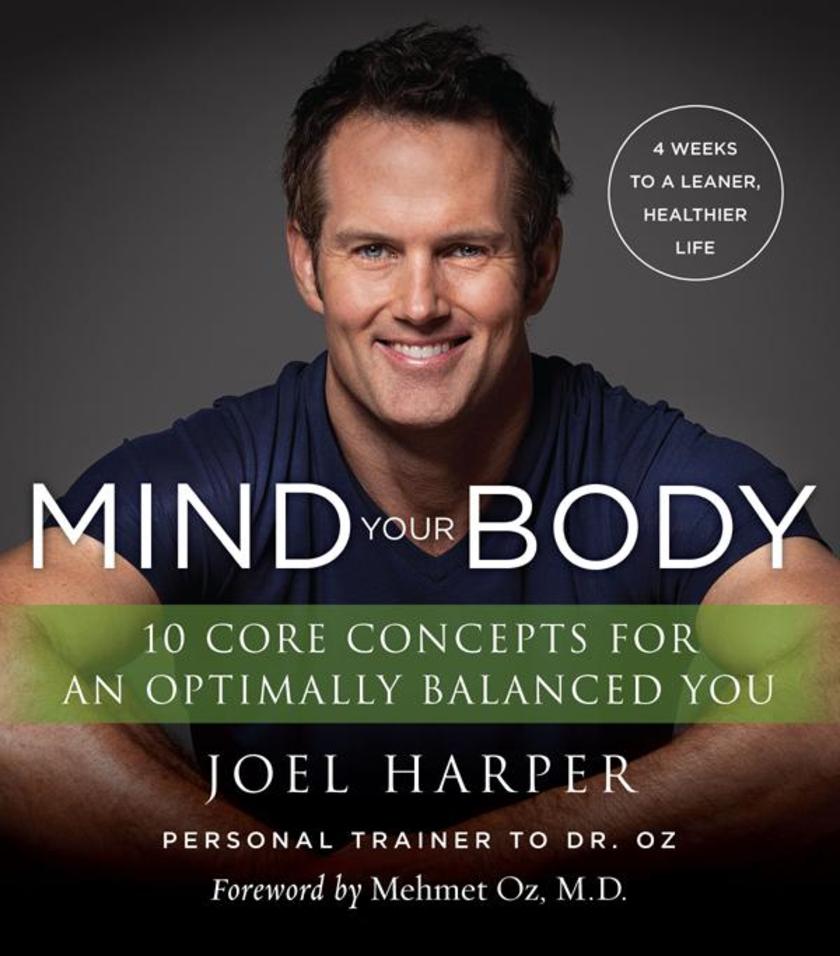
Mind Your Body
¥90.77
A personal trainer to the stars and regular contributor to The Dr. Oz Show, Joel Harper has spent twenty years helping people achieve their weight-loss goals and optimally balancing every category of their lives. Over his career, he has witnessed firsthand thousands of health transformations and personal breakthroughs. But he's also seen time and time again how different people following the exact same regime will produce stunningly different results. Some people flourish, while others simply throw in the towel. So Harper set out to figure out why. By investigating cutting-edge research in the fields of neuroscience and neuropsychology, Harper soon discovered that people who are stuck struggling with excess weight have one thing in common—destructive self-talk and negative thinking patterns. That's right. The missing solution to successful—and long-lasting—weight loss isn't another fad diet. The secret, according to Harper, lies in tapping the power of your mind. In Mind Your Body, Harper explores the crucial—and often overlooked—connection between meals, moves, and mindset: meals to keep you nourished, moves that can be done in the comfort of your home, and the mindset to keep you motivated, inspired, and thriving. And in the process, he provides a "whole-istic" three-step weight-loss program that will help you quadruple your weight loss, maximize your workouts by 85 percent, and boost your happiness and energy levels by more than 40 percent—in just fifteen minutes a day.With Harper's proven, fun, and effective program, you'll be able to finally blast through those frustrating plateaus and achieve—once and for all—the physical, mental, and emotional health you desire. Harper teaches you the ten optimal traits that lead to successful nutritional, physical, and mental fitness. If you are tired of yo-yo dieting, fed up with hitting weight-loss plateaus, and ready to finally achieve the health and happiness that seem so elusive, Mind Your Body is the self-empowering and life-changing mind-body solution you've been waiting for.

Simon vs. the Homo Sapiens Agenda
¥61.52
A National Book Award Longlist TitleEverybody is talking about Simon vs. the Homo Sapiens Agenda!"A remarkable gift of a novel."—Andrew Smith, author of Grasshopper Jungle"I am so in love with this book."—Nina LaCour, author of Hold Still"Feels timelessly, effortlessly now."—Tim Federle, author of Better Nate Than Ever"The best kind of love story."—Alex Sanchez, Lambda Award-winning author of Rainbow Boys and Boyfriends with GirlfriendsSixteen-year-old and not-so-openly gay Simon Spier prefers to save his drama for the school musical. But when an email falls into the wrong hands, his secret is at risk of being thrust into the spotlight. Now change-averse Simon has to find a way to step out of his comfort zone before he's pushed out—without alienating his friends, compromising himself, or fumbling a shot at happiness with the most confusing, adorable guy he's never met.Incredibly funny and poignant, this twenty-first-century coming-of-age, coming out story—wrapped in a geek romance—is a knockout of a debut novel by Becky Albertalli.

Some Other Town
¥83.03
Margaret Lydia Benning, twenty-eight and adrift, still lives in the same Midwest town where she went to college. By day, she works at the Project, a nonprofit publisher of children's readers housed in a former sanatorium. There she shares the fourth floor with a squadron of eccentric editors and a resident ghost from the screamers' wing. At night, Margaret returns alone to her small house on Mott Street, with only her strange neighbor, Mrs. Eberline, for company.Emotionally sleepwalking through the days is no way to lead a life. But then Margaret meets Ben Adams, a visiting professor at the university. Through her deepening relationship with Ben she glimpses a future she had never before imagined, and for the first time she has hope . . . until Ben inexplicably vanishes. In the wake of his disappearance, Margaret sets out to find him. Her journey, a revelatory exploration of the separate worlds that exist inside us and around us, will force her to question everything she believes to be true.Told through intertwined perspectives, by turns incandescent and haunting, Some Other Town is an unforgettable tale, with a heartbreaking twist, of one woman's awakening to her own possibility.
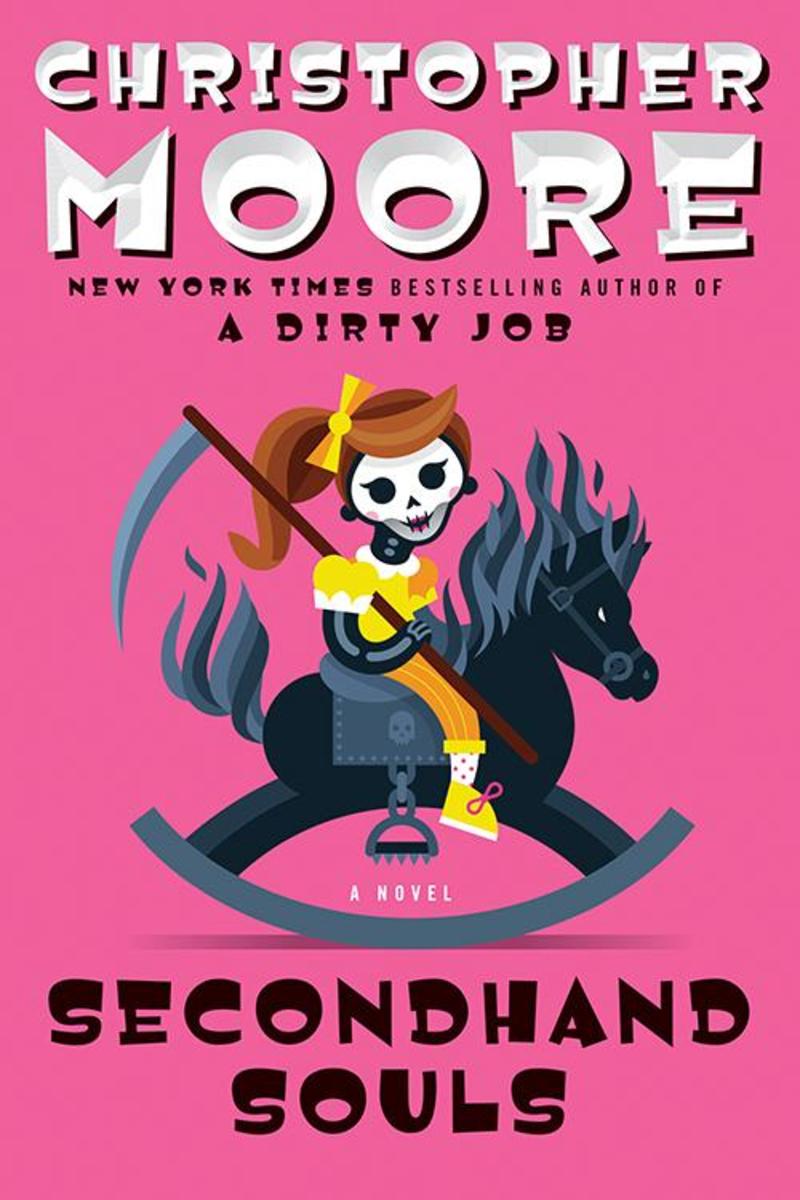
Secondhand Souls
¥90.77
In San Francisco, the souls of the dead are mysteriously disappearing—and you know that can't be good—in this delightfully weird and funny sequel to the New York Times bestseller A Dirty JobSecondhand SoulsIt seems like only yesterday that Charlie Asher took on a very dirty job—collecting souls and keeping the Forces of Darkness at bay. The new gig came with the Big Book of the Dead and a host of other oddities: creatures under the streets, an evil trinity of ravenlike Celtic death goddesses, and one very bad Underworld dude attempting to conquer humanity. Along with a cohort of other oddballs, Charlie faced off against these denizens of darkness—and met his own end. But thanks to Audrey, his Buddhist-nun boo, his soul is still alive . . . inside a fourteen-inch-high body made from lunchmeat and spare animal parts. Waiting for Audrey to find him a suitable new body to play host, Charlie has squirreled himself away from everyone, including his adorable seven-year-old daughter, Sophie, who enjoys dressing up like a princess, playing with her glitter ponies, and—being the Luminatus—spouting off about her power over the Underworld and her dominion over Death.Just when Charlie and company thought the world was safe, some really freaky stuff hits San Francisco. People are dying, but their souls are not being collected. Someone—or something—is stealing them and no one knows where they are going, or why, but it has something to do with that big orange bridge. Then there's the Taser-wielding banshee keening about doom who's suddenly appeared while Sophie's guardian hellhounds, Alvin and Mohammed, have mysteriously vanished.Charlie is just as flummoxed as everyone else. To get to the bottom of this abomination, he and a motley crew of heroes will band together: the seven-foot-tall, two-hundred-and-seventy-five-pounds-of-lean-heartache Death Merchant Minty Fresh; the retired policeman-turned-bookseller Alphonse Rivera; the lunatic Emperor of San Francisco and his dogs, Bummer and Lazarus; Mike Sullivan, a bridge painter in love with a ghost; a gentle French-speaking janitor named Jean-Pierre Baptiste; and former Goth girl Lily Darquewillow Elventhing Severo, now a part-time suicide hotline counselor.With little Sophie babbling about the coming battle for the very soul of humankind, time is definitely not on their side. . . .Irresistibly zany, rich in humor, heart, and spirit, Secondhand Souls is vintage Christopher Moore.

The Debutante Divorcee
¥90.51
From New York Times bestselling author Plum Sykes comes the delicious follow-up to Bergdorf Blondes, a hilarious tale of marriage, friendship, and divorce.Filled with wit and charm, The Debutante Divorcée stars Sylvie Mortimer, a recently married socialite who is quick to discover that her marriage is far from photo-perfect. Her best friend, Lauren Blount, the chic-est of the Debutante Divorcées, is basking in her freedom, taking solo honeymoons, having divorce showers, and pursuing any man she chooses as part of her "Make-Out Challenge." And Sylvie's perfect Town & Country life is about to be rocked by a divine and dangerous predator—the very rich, very young, very thin, and very divorced Husband Huntress.

The Witch with No Name
¥56.07
All good things must end . . .After ten years and thirteen adventures, at last the triumphant conclusion to Kim Harrison's #1 New York Times bestselling Hollows series!The Witch with No Name In 2004, Kim Harrison made her debut with Dead Witch Walking, an electrifying urban fantasy novel full of action, mystery, romance, and humor, which introduced bounty hunter and witch Rachel Morgan. Over the course of twelve books, Rachel confronted numerous threats, vanquished a range of cunning and powerful enemies, risked her heart, suffered haunting loss, and nearly lost her life. Now, in The Witch with No Name, Kim Harrison brings back her wildly popular heroine for one final, epic battle.Rachel Morgan's come a long way from the klutzy runner fleeing a bad job. She's faced vampires and werewolves, banshees, witches, and soul-eating demons. She's crossed worlds, channeled gods, and accepted her place as a day-walking demon. She's lost friends and lovers and family, and an old enemy has become something much more.But power demands responsibility, and world-changers must always pay a price.That time is now.To save her best friend Ivy's soul and the rest of the living vampires, to keep the demonic ever-after and our own world from utter destruction at the hands of fanatics, Rachel Morgan will risk everything.
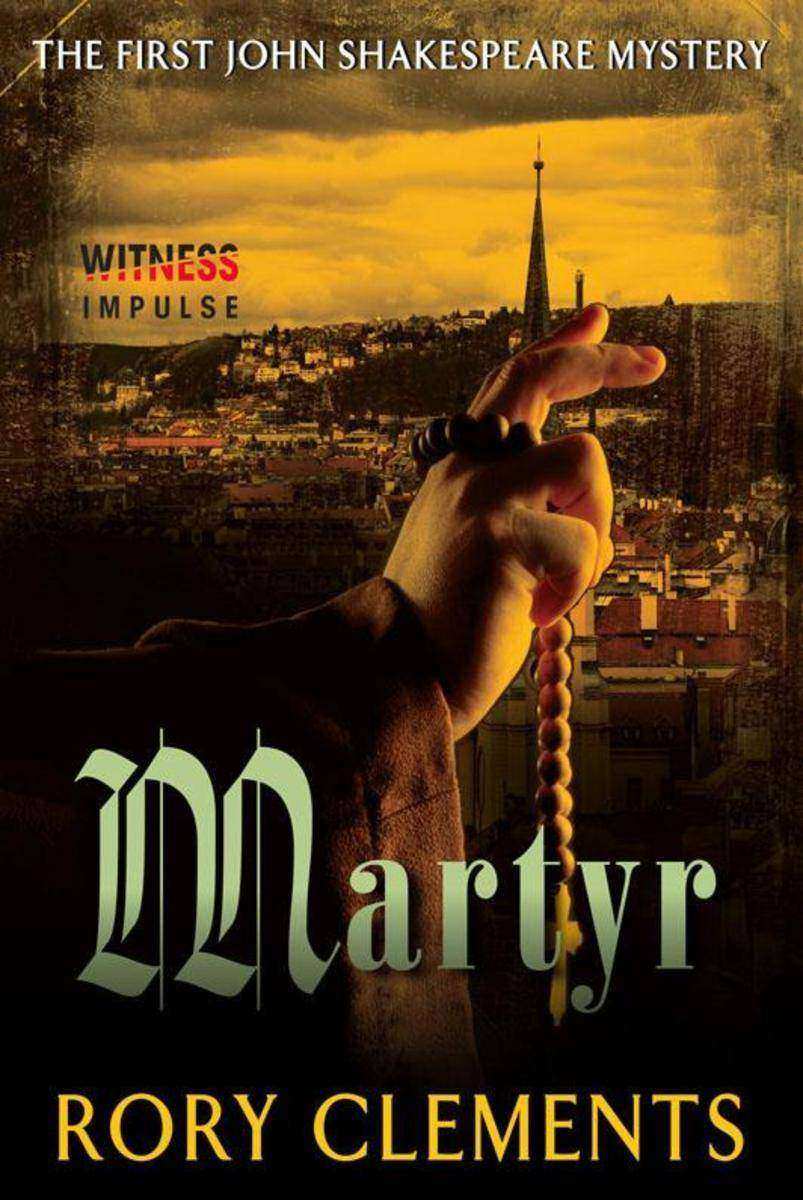
Martyr
¥66.50
England is close to war. Within days the axe could fall on the neck of Mary, Queen of Scots, and Spain is already gathering a battle fleet to avenge her.Tensions in Elizabeth I's government are at the breaking point. At the center of the storm is John Shakespeare, chief intelligencer in the secret service of Sir Francis Walsingham. When an intercept reveals a plot to assassinate England's "sea dragon," Francis Drake, Shakespeare is ordered to protect him. Busy fitting out his ships on land, Drake is frighteningly vulnerable. If he dies, England will be open to invasion.From the splendor and intrigue of the royal court to the sleek warships of Her Majesty's Navy and the teeming brothels of Southwark, Shakespeare soon learns that nothing is as it seems …
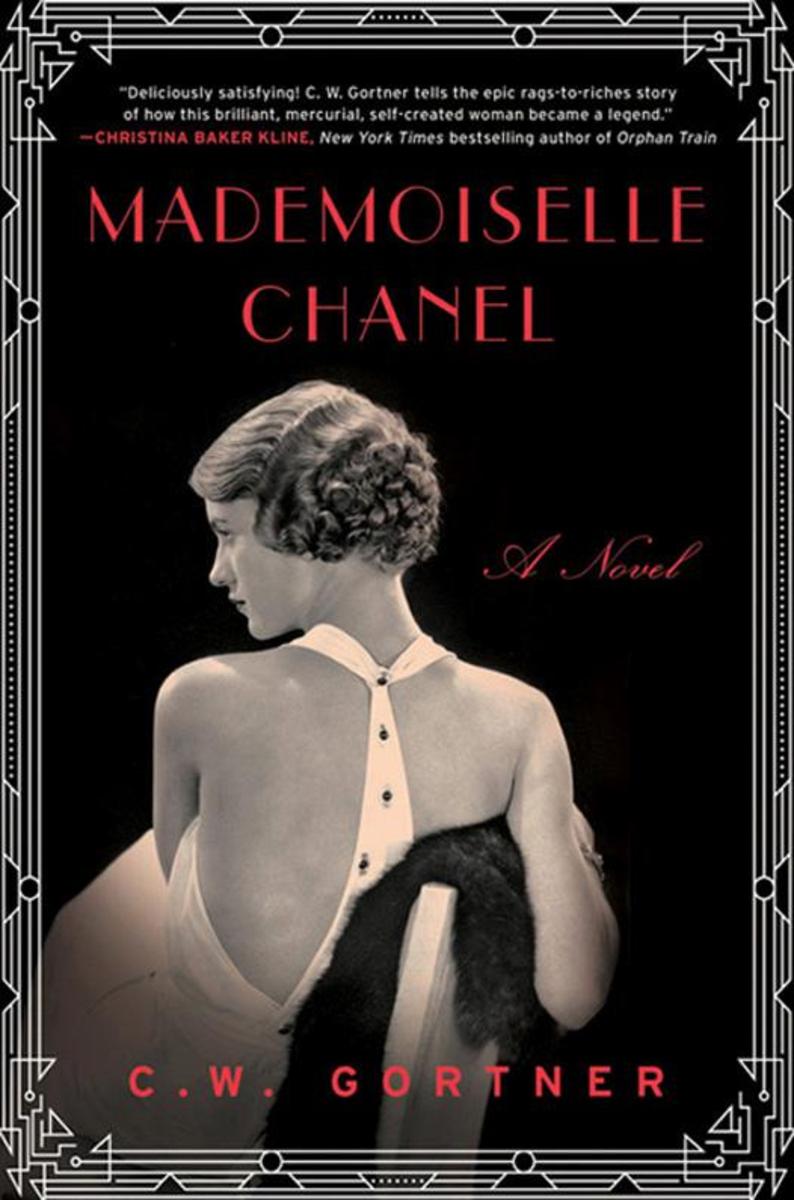
Mademoiselle Chanel
¥90.51
She revolutionized fashion and built an international empire . . . all on her own termsBorn into rural poverty, Gabrielle Chanel and her sisters are sent to a convent orphanage after their mother's death. The nuns of the order nurture Gabrielle's exceptional sewing skills, a talent that would propel the willful young woman into a life far removed from the drudgery of her childhood.Burning with ambition, the petite brunette transforms herself into Coco, by day a hard-working seamstress and by night a singer in a nightclub, where her incandescence draws in a wealthy gentleman who becomes the love of her life. She immerses herself in his world of money and luxury, discovering a freedom that sparks her creativity. But it is only when her lover takes her to Paris that Coco discovers her destiny. Rejecting the frilly, corseted silhouette of the past, Coco's sleek, minimalist styles reflect the youthful ease and confidence of the 1920s modern woman. As her reputation spreads, her couture business explodes, taking her into rarefied circles of society and bohemian salons. But her fame and fortune cannot save her from heartbreak as the years pass. And when Paris falls to the Nazis, Coco is forced to make choices that will haunt her always. An enthralling novel about an entirely self-made woman, Mademoiselle Chanel tells the true story of Coco Chanel's extraordinary ambition, passion, and artistic vision.

Lovely, Dark, Deep
¥94.10
From the legendary literary master, winner of the National Book Award and New York Times bestselling author Joyce Carol Oates, a collection of thirteen spellbinding stories that maps the eerie darkness within us allInsightful, disturbing, and mesmerizing in their lyrical precision, the stories in Lovely, Dark, Deep display Joyce Carol Oates's astonishing ability to make visceral the fear, hurt, and uncertainty that lurks at the edges of ordinary lives.In "Mastiff," a woman and a man are joined in an erotic bond forged out of terror and gratitude. "Sex with Camel" explores how a sixteen-year-old boy realizes the depth of his love for his grandmother—and how vulnerable those feelings make him. Fearful that her husband is vanishing from their life, a woman becomes obsessed with keeping him in her sight in "The Disappearing." "A Book of Martyrs" reveals how the end of a pregnancy brings with it the end of a relationship. And in the title story, the elderly Robert Frost is visited by an interviewer, a troubling young woman who seems to know a good deal more about his life than she should.A piercing and evocative collection, Lovely, Dark, Deep reveals Joyce Carol Oates at her most imaginative and unsettling.
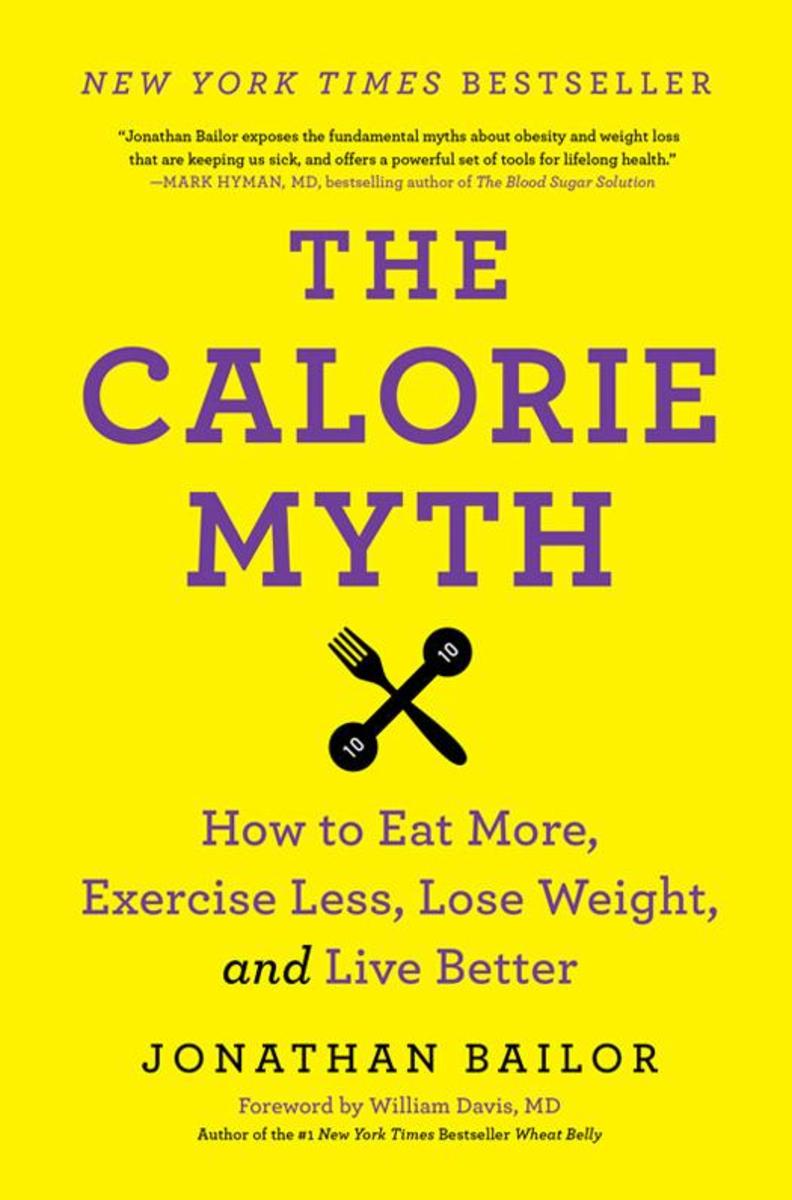
The Calorie Myth
¥88.56
Contrary to what most diets would have you believe, the human body does not recognize all calories as equal. Some foods are used to boost brain power, fuel metabolism, and heal the body—while others are simply stored as fat. In The Calorie Myth, Bailor shows us how eating more of the right kinds of foods and exercising less, but at a higher intensity, is the true formula for burning fat.WhyBecause eating high-quality foods balances the hormones that regulate our metabolism. When we eat these foods, our bodies naturally maintain a healthy weight. But when we eat sugar, starches, processed fats, and other poor-quality foods, the body's regulatory system becomes "clogged" and prevents us from burning extra calories. Translation: Those extra 10 pounds aren't the result of eating too much . . . they're the result of eating the wrong foods!Bailor offers clear, comprehensive guidance on what to eat and why, providing an eating plan, recipes, and a simple yet effective exercise regimen. Losing weight doesn't have to mean going hungry or spending hours at the gym. The Calorie Myth offers a radical and effective new model for weight loss and long-term health.

Demon's Vengeance
¥48.39
The complete novel that comprises Demon's Fury, Demon's Vow and Inner Demon.Powerful warlock and tattoo artist Gage has managed to escape the magical Ivory Towers who terrorize the rest of humans and monsters—but at a price. Now he must join forces with his nemesis, Gideon, to stop an entity that is using forbidden Death Magic to commit gruesome murders across the nation. And if that's not keeping him busy enough, an investigator recruits Gage to help her track a killer … who might be targeting tattoo artists.When Gage discovers a demon locked away, it offers him access to dark magic in exchange for its freedom—a dangerous opportunity, but one that could save his loved ones. Gage must choose between what is right and what is easy.
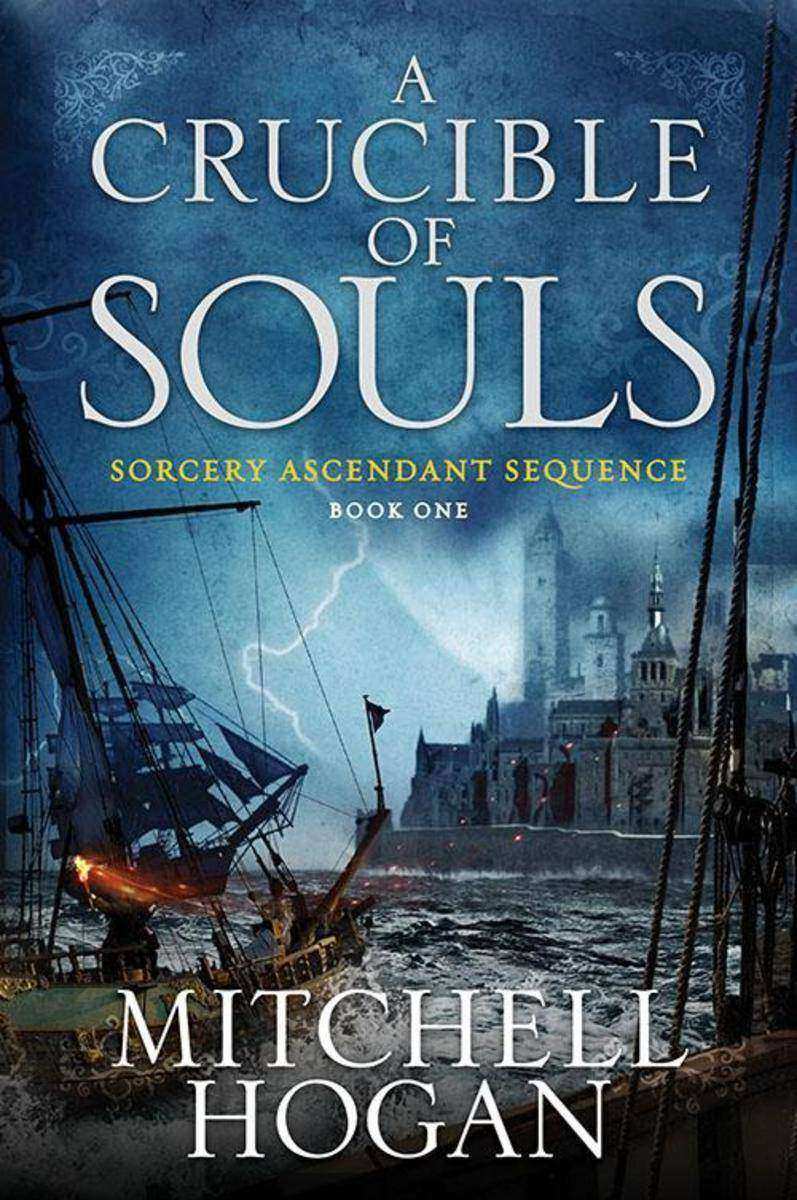
A Crucible of Souls
¥101.00
An imaginative new talent makes his debut with the acclaimed first installment in the epic Sorcery Ascendant Sequence, a mesmerizing tale of high fantasy that combines magic, malevolence, and mysteryAfter young Caldan's parents are brutally slain, the boy is raised by monks who initiate him into the arcane mysteries of sorcery.Growing up plagued by questions about his past, Caldan vows to discover who his parents were, and why they were killed. The search will take him beyond the walls of the monastery, into the unfamiliar and dangerous chaos of city life. With nothing to his name but a pair of mysterious heirlooms and a handful of coins, he must prove his talent to become apprenticed to a guild of sorcerers.But the world outside the monastery is a darker place than he ever imagined, and his treasured sorcery has disturbing depths he does not fully understand. As a shadowy evil manipulates the unwary and forbidden powers are unleashed, Caldan is plunged into an age-old conflict that will bring the world to the edge of destruction. Soon, he must choose a side—and face the true cost of uncovering his past.
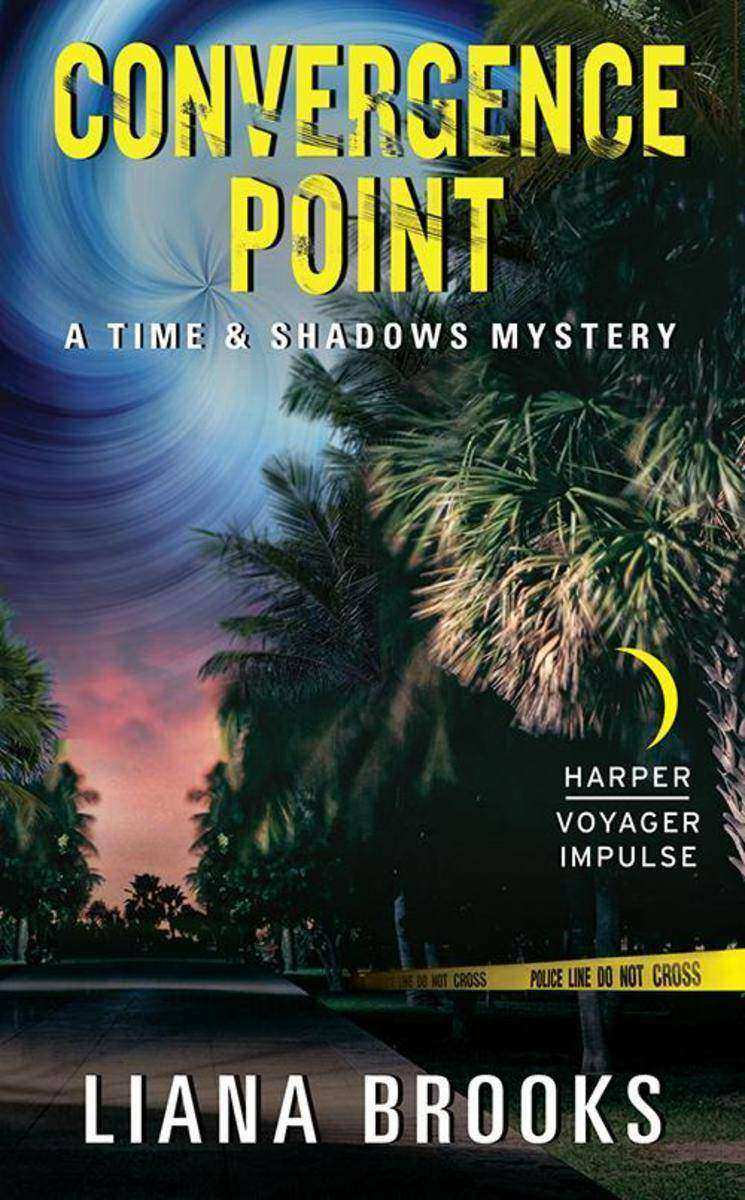
Convergence Point
¥48.39
A brand new Time & Shadows Mystery!Agent Samantha Rose has already died once…and knows the exact date she’ll die again.Having taken down a terrorist organization bent on traveling through time to overthrow the government, Sam figured she was done dealing with the unbelievable. Finally out of backwater Alabama, she’s the senior agent in a Florida district, and her life is back on track.Until a scientist is found dead. And then an eco-terrorist. And then a clone of herself…again.As the pieces start to fall together, they paint a picture that seems to defy everything they know about time and physics. But the bodies are all too real, and by partnering up with Agent MacKenzie once more, they might just figure out what’s going on. And when.

Stuart Little
¥44.73
Now available for the first time as an ebook! Illustrations in this ebook appear in vibrant full color on a full-color device and in rich black-and-white on all other devices.This beloved book by E. B. White, author of Charlotte's Web and The Trumpet of the Swan, is a classic of children's literature that features a very small mouse on a very big adventure. Stuart Little is no ordinary mouse. Born to a family of humans, he lives in New York City with his family. But when Stuart's best friend goes missing, he's determined to leave home and take an epic journey to find his friend.E. B. White's classic book is a tender novel of friendship, family, and adventure that will continue to be enjoyed by generations to come. It contains beautiful illustrations by Garth Williams, the acclaimed illustrator of E. B. White's Charlotte's Web and Laura Ingalls Wilder's Little House series, among many other books. Correlates to the Common Core State Standards in English Language Arts
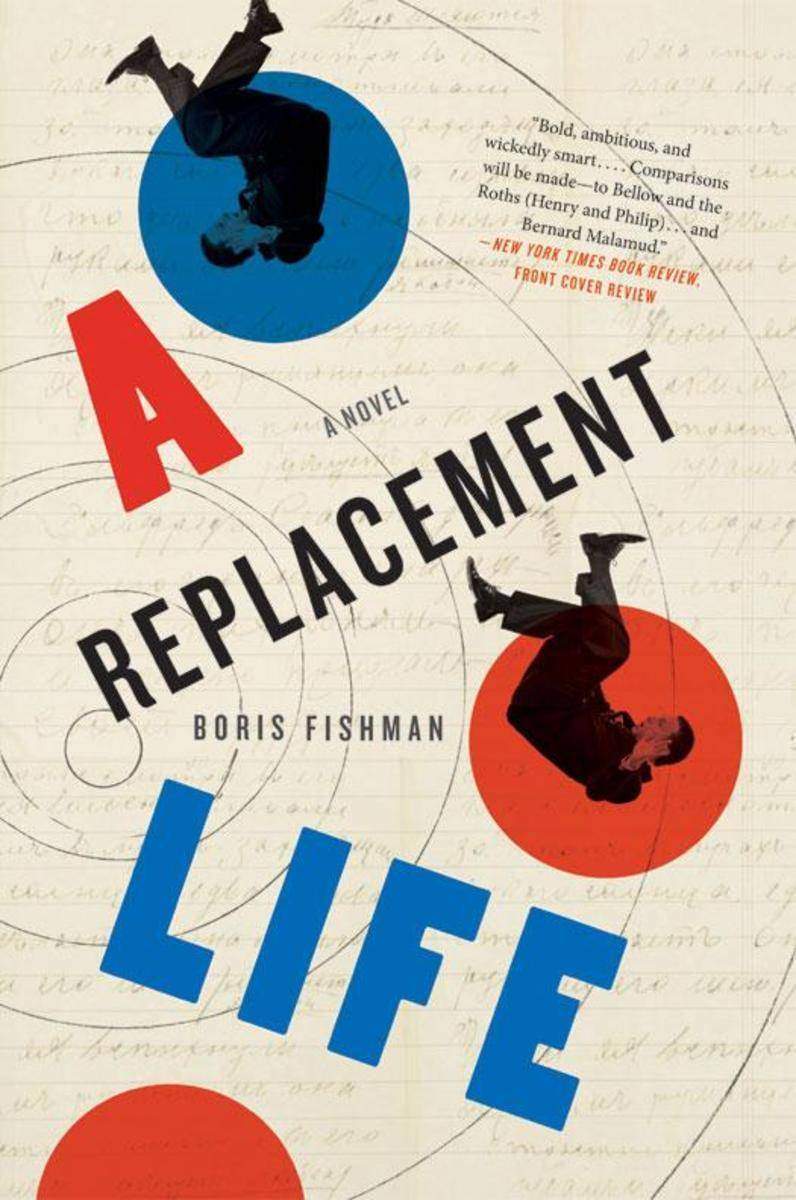
A Replacement Life
¥83.03
A singularly talented writer makes his literary debut with this provocative, soulful, and sometimes hilarious story of a failed journalist asked to do the unthinkable: forge Holocaust-restitution claims for old Russian Jews in Brooklyn, New York.Yevgeny Gelman, grandfather of Slava Gelman, ''didn't suffer in the exact way'' he needs to have suffered to qualify for the reparations the German government has been paying out to Holocaust survivors. But suffer he has—as a Jew in the war, as a second-class citizen in the USSR, as an immigrant in America. SoIsn't his grandson a ''writer''?High-minded Slava wants to put all this immigrant-scraping behind him. Only the American dream is not panning out for him: Century, the legendary magazine where he works as a researcher, wants nothing greater from him. Slava wants to be a correct, blameless American—but he wants to be a lionized writer even more.Slava's turn as the Forger of South Brooklyn teaches him that not every fact is a truth and not every lie a falsehood. It takes more than law-abiding to become an American; it takes the same self-reinvention at which his people excel. Intoxicated and unmoored by his inventions, Slava risks exposure. Cornered, he commits an irrevocable act that finally grants him a sense of home in America—but not before collecting a lasting price from his family.A Replacement Life is a dark, moving, and beautifully written novel about family, honor, and justice.?
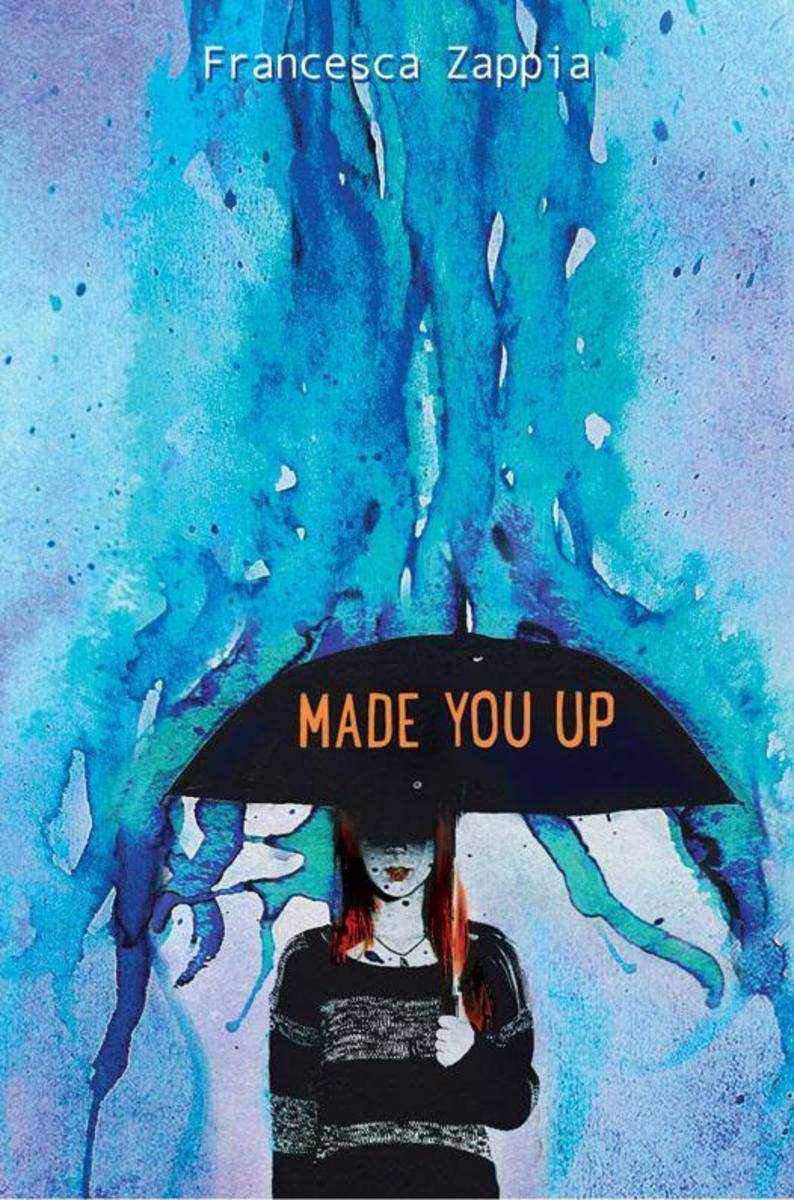
Made You Up
¥56.08
Reality, it turns out, is often not what you perceive it to be—sometimes, there really is someone out to get you. For fans of Silver Linings Playbook and Liar, this thought-provoking debut tells the story of Alex, a high school senior—and the ultimate unreliable narrator—unable to tell the difference between real life and delusion.Alex fights a daily battle to figure out what is real and what is not. Armed with a take-no-prisoners attitude, her camera, a Magic 8 Ball, and her only ally (her little sister), Alex wages a war against her schizophrenia, determined to stay sane long enough to get into college. She's pretty optimistic about her chances until she runs into Miles. Didn't she imagine himBefore she knows it, Alex is making friends, going to parties, falling in love, and experiencing all the usual rites of passage for teenagers. But Alex is used to being crazy. She's not prepared for normal. Can she trust herselfCan we trust her?
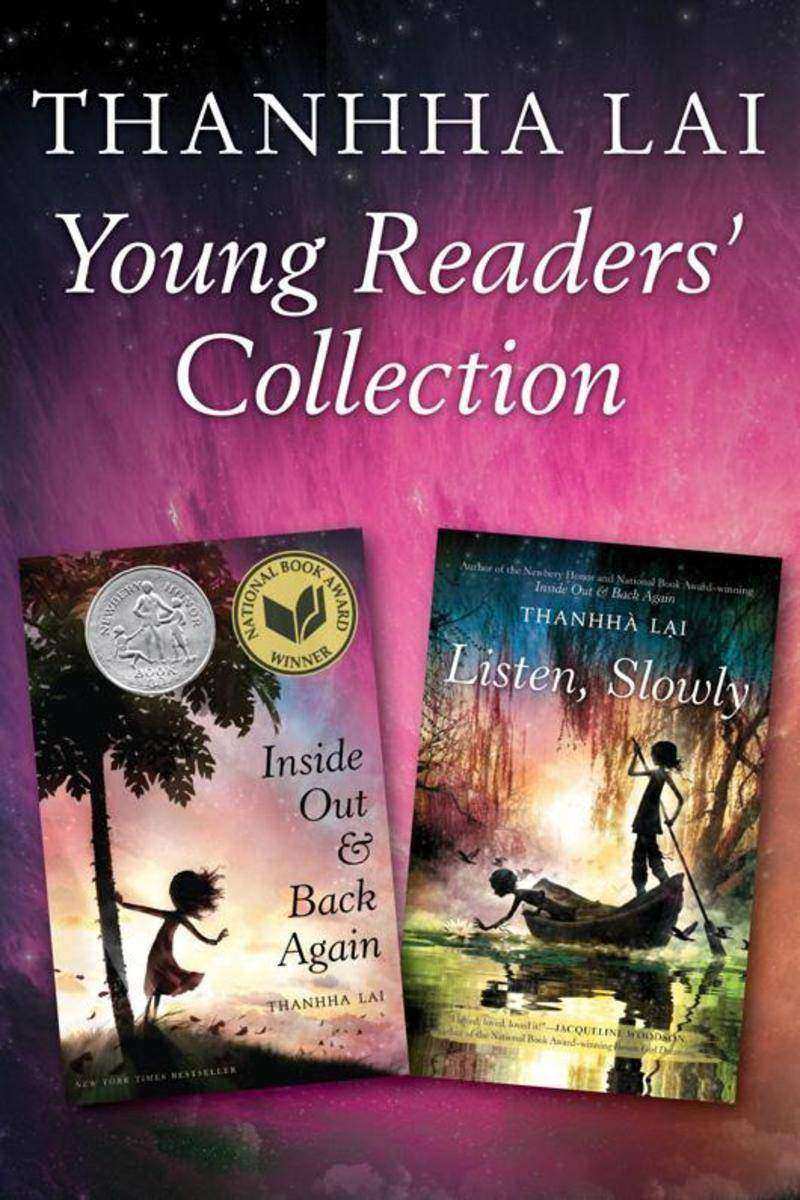
Thanhha Lai Young Readers' Collection
¥107.82
Acclaimed New York Times bestselling author Thanhha Lai won the National Book Award for Young People's Literature and the Newbery Honor for her debut novel, Inside Out and Back Again. This collection includes Inside Out and Back Again along with her newest novel, Listen, Slowly. Inside Out and Back Again: Inspired by the author's childhood experience of fleeing Vietnam after the Fall of Saigon and immigrating to Alabama, this coming-of-age debut novel told in verse has been celebrated for its touching child's-eye view of family and immigration. For all the ten years of her life, Hà has only known Saigon: the thrills of its markets, the joy of its traditions, and the warmth of her friends close by. But now the Vietnam War has reached her home. Hà and her family are forced to flee as Saigon falls, and they board a ship headed toward hope. In America, Hà discovers the foreign world of Alabama: the coldness of its strangers, the dullness of its food . . . and the strength of her very own family.Listen, Slowly: Twelve-year-old Mia's parents are sending her, along with her father, on a trip to Vietnam so she can learn more about her roots—and also help her grandmother figure out what really happened to Mia's grandfather during the Vietnam War. Since Mia barely knows the language or customs, she is desperately counting down the days until she can go back home. But the next few weeks are a life-changing experience. As time passes, Mia begins to have a change of heart, growing closer to her family and developing an understanding of a culture and an entire world which that she never really knew about.
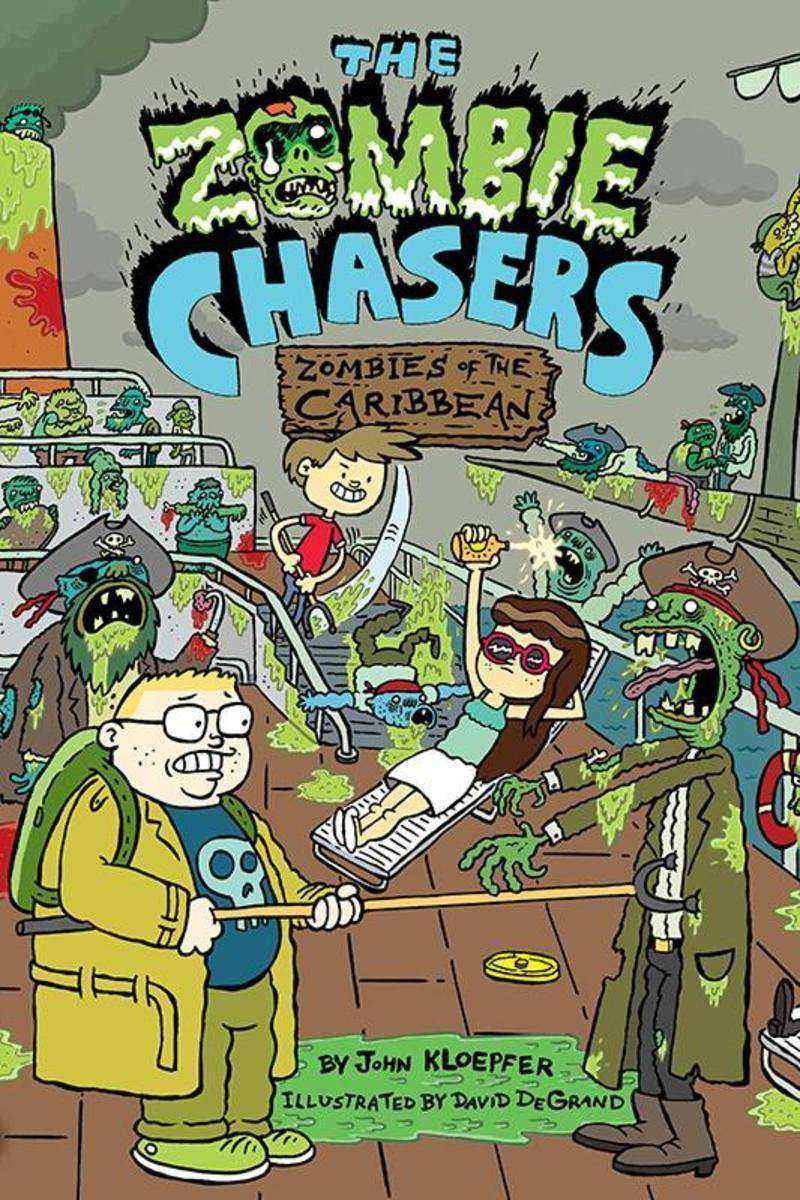
The Zombie Chasers #6: Zombies of the Caribbean
¥39.24
The Zombie Chasers take to the high seas in the sixth installment of John Kloepfer's hysterical Zombie Chasers tween series, illustrated by David DeGrand. With all the middle school shenanigans, fast-paced adventure, and hilarious black-and-white drawings that have made this series so beloved by reluctant readers everywhere, The Zombie Chasers #6: Zombies of the Caribbean is a gore-larious romp not to be missed!Zack Clarke and his team—Zoe, Rice, Ozzie, Madison, and Olivia—have fled the infested coasts of Florida, chased by a ravenous mob of super zombies. With no antidote in sight, there's only one person who can help them now: an eccentric explorer—and renowned zombie expert—who's lying low in a zombie-proof bunker somewhere in the Caribbean. As the pals fend off decomposing pirates, crusty crew mates, and putrid sea creatures, they race to uncover the cure for zombies everywhere. But will they be able to defeat the zombies of the Caribbean before the cure and their plan go overboard?
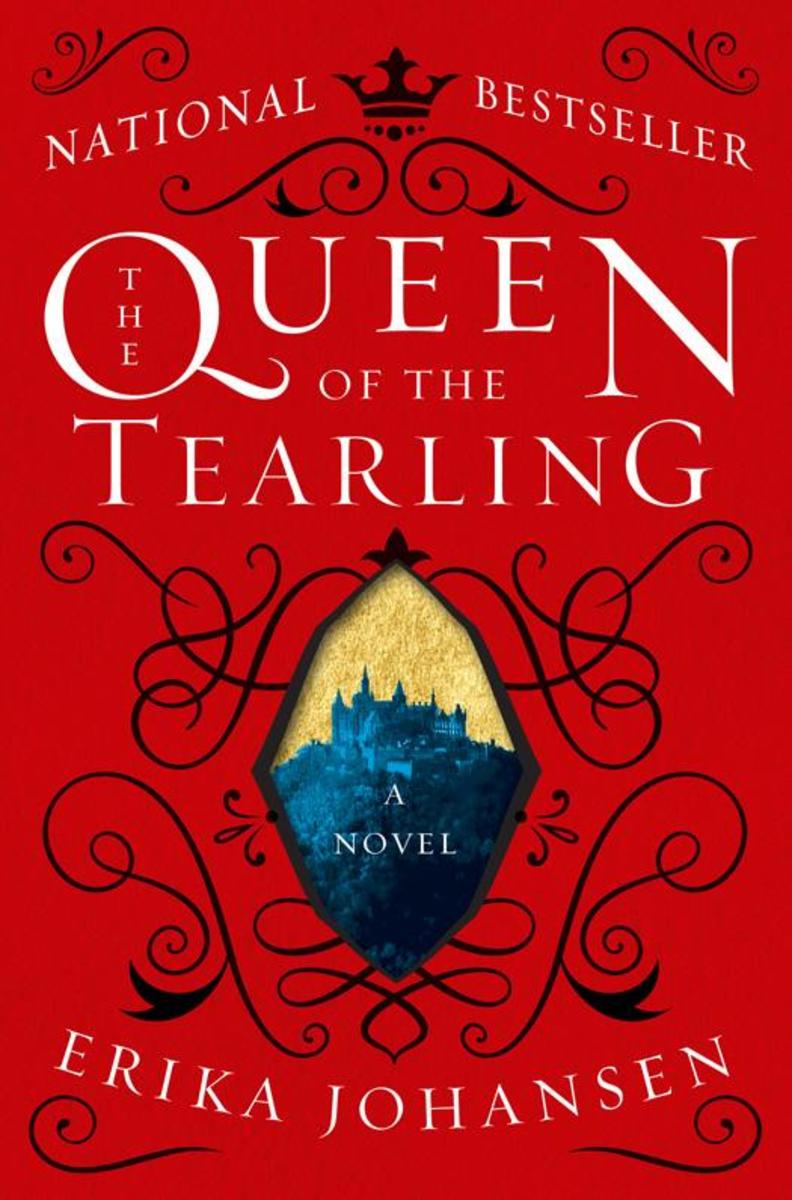
The Queen of the Tearling
¥94.10
An untested young princess must claim her throne, learn to become a queen, and combat a malevolent sorceress in an epic battle between light and darkness in this spectacular debut—the first novel in a trilogy.Young Kelsea Raleigh was raised in hiding after the death of her mother, Queen Elyssa, far from the intrigues of the royal Keep and in the care of two devoted servants who pledged their lives to protect her. Growing up in a cottage deep in the woods, Kelsea knows little of her kingdom's haunted past . . . or that its fate will soon rest in her hands.Long ago, Kelsea's forefathers sailed away from a decaying world to establish a new land free of modern technology. Three hundred years later, this feudal society has divided into three fearful nations who pay duties to a fourth: the powerful Mortmesne, ruled by the cunning Red Queen. Now, on Kelsea's nineteenth birthday, the tattered remnants of the Queen's Guard—loyal soldiers who protect the throne—have appeared to escort the princess on a perilous journey to the capital to ascend to her rightful place as the new Queen of the Tearling.Though born of royal blood and in possession of the Tear sapphire, a jewel of immense power and magic, Kelsea has never felt more uncertain of her ability to rule. But the shocking evil she discovers in the heart of her realm will precipitate an act of immense daring, throwing the entire kingdom into turmoil—and unleashing the Red Queen's vengeance. A cabal of enemies with an array of deadly weapons, from crimson-caped assassins to the darkest blood magic, plots to destroy her. But Kelsea is growing in strength and stealth, her steely resolve earning her loyal allies, including the Queen's Guard, led by the enigmatic Lazarus, and the intriguing outlaw known simply as "the Fetch."Kelsea's quest to save her kingdom and meet her destiny has only just begun. Riddled with mysteries, betrayals, and treacherous battles, Kelsea's journey is a trial by fire that will either forge a legend . . . or destroy her.
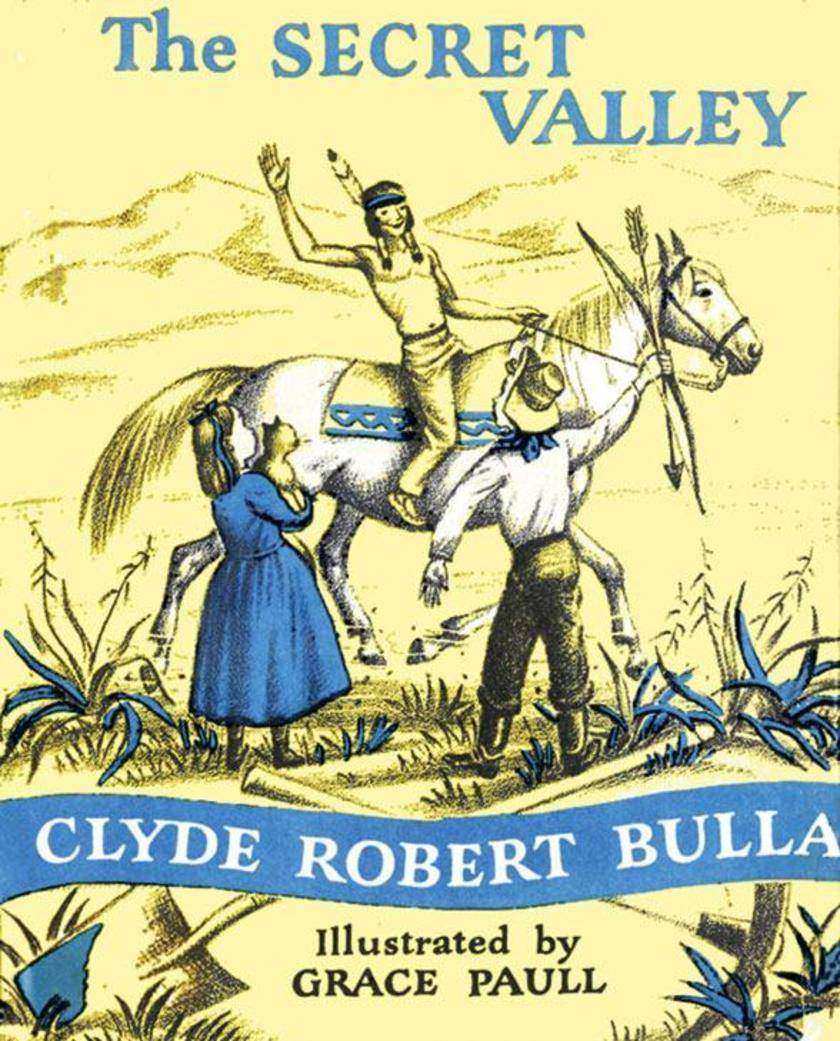
HarperCollins
¥97.03
Join Frank, Ellen, and the whole Davis family on their adventure west during the Gold Rush of 1849. This exciting chronicle has the same appeal as Laura Ingalls Wilder's Little House books.
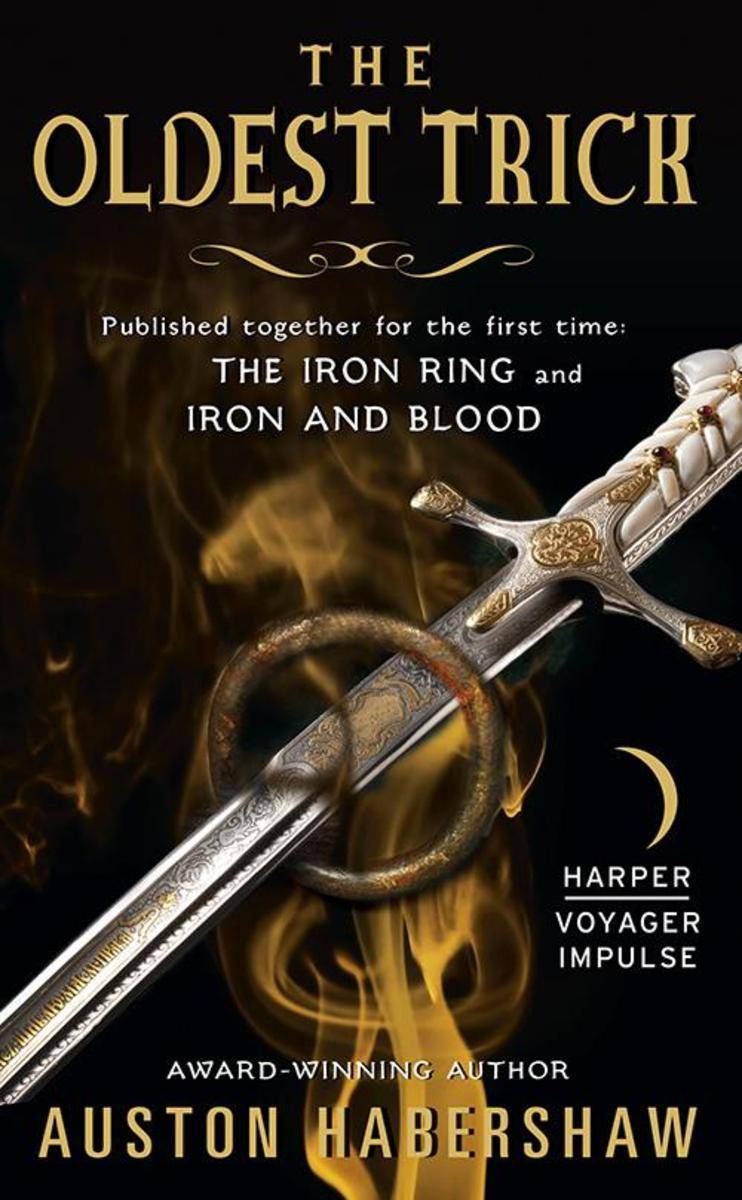
The Oldest Trick
¥62.24
Compiled for the first time, The Oldest Trick comprises The Iron Ring and Iron and Blood in the Saga of the RedeemedTyvian Reldamar gets betrayed by his longtime partner and left for dead in a freezing river. To add insult to injury, his mysterious rescuer took it upon himself to affix Tyvian with an iron ring that prevents the wearer from any evildoing.Revenge just got complicated.On his quest to get even, Tyvian navigates dark conspiracies, dodges midnight assassins, and uncovers the plans of the ruthless wizard Banric Sahand. Tyvian will need to use every dirty trick in the book to avoid a painful and ignominious end, even as he learns to work with—and rely on—his motley crew of accomplices, including an adolescent pickpocket, an obese secret-monger, and a fearsome gnoll.




 购物车
购物车 个人中心
个人中心



